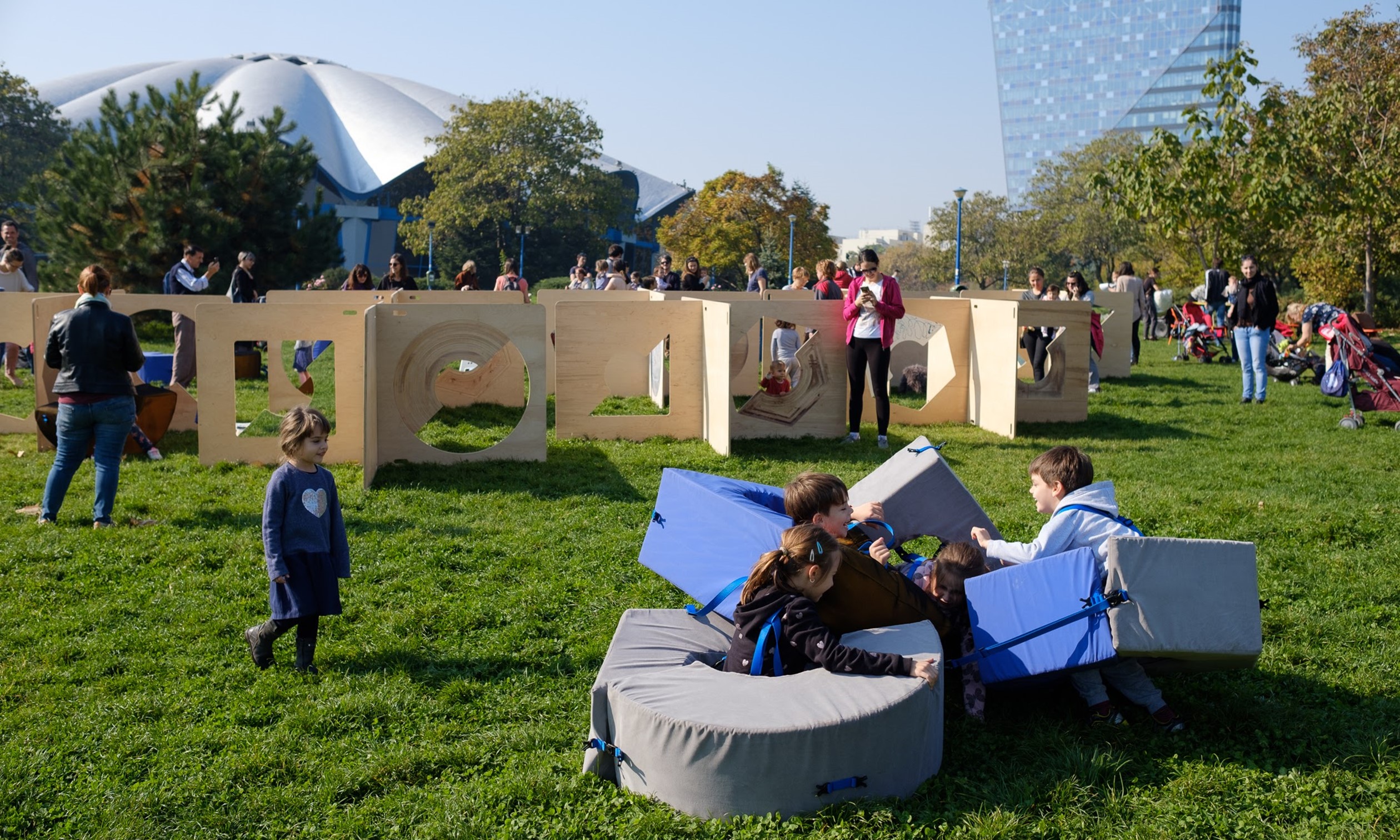
Playing builds the character of tomorrow's adults; therefore, playgrounds must be accessible to all children.??
That's the inspiration behind PopUP Răspiua, one of the submissions in last year's New European Bauhaus award in "Products and Lifestyle."
The Romanian initiative has built an interaction platform for non-disabled and disabled children,
manifested as a mobile, inclusive playground.
PopUP Răspiua transforms play spaces into inclusive arenas by embracing a participatory design methodology. The playground becomes a space where children learn about their playing needs and preferences. It develops awareness of the need for an inclusive society from a young age by providing children with equal opportunities to play.
The initiative encourages activities with children from special schools, such as focus groups, "playdates," and on-site observation. To adjust to each child's experience, values such as playing difficulties, the usability of playground facilities, and interaction have been evaluated.
PopUP Răspiua's modular nature and inclusive design principles adapt playtime to practically any setting (interior/exterior).
Another critical component of the project is sensory stimulation, which assists in developing cognition, motor abilities, and social interaction.
Multisensory techniques stimulate children's imaginations by using simple geometric forms, textures, and modular delimitations—embodied through armors and casemates.??️
Multifunctional and wearable items modify the child's perceptions of differences and lessen physical and mental barriers. Soft and pleasant elements play a part in helping them overcome the fear of exploring an unknown environment.???
The highly reproducible project has a versatile nature which a substantial impact on multiple levels:
- Cognitive-educational: using play as an alternative teaching strategy.
- Social: allowing all children access to the playground, helping them grow as individuals.
- Medical: stimulating muscular and skeletal growth through mechanical activities.
? © European Union
- Reference
- Prizes 2021, Other Applications
- Project locations
- Bucharest, Romania
